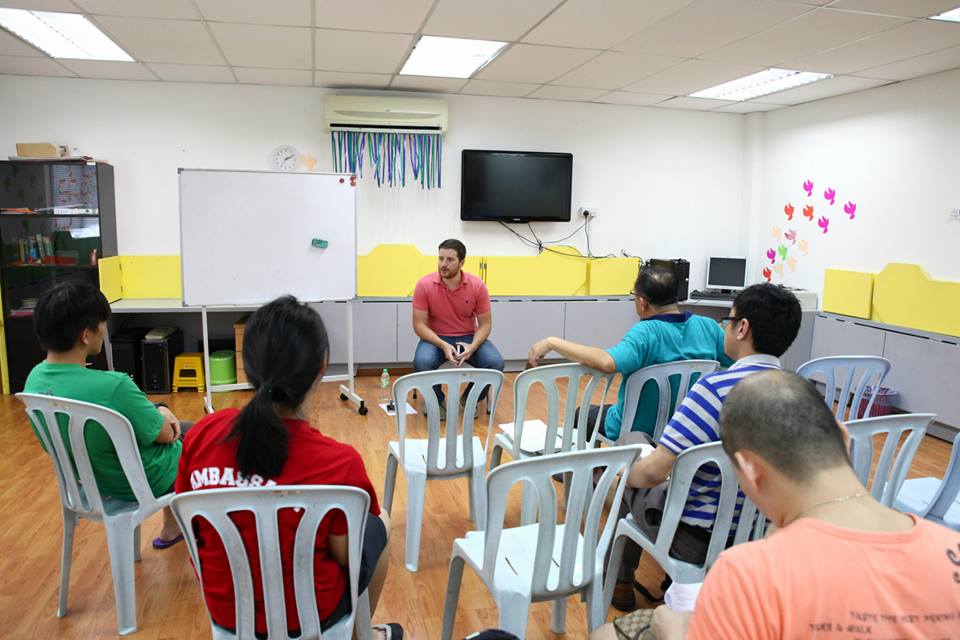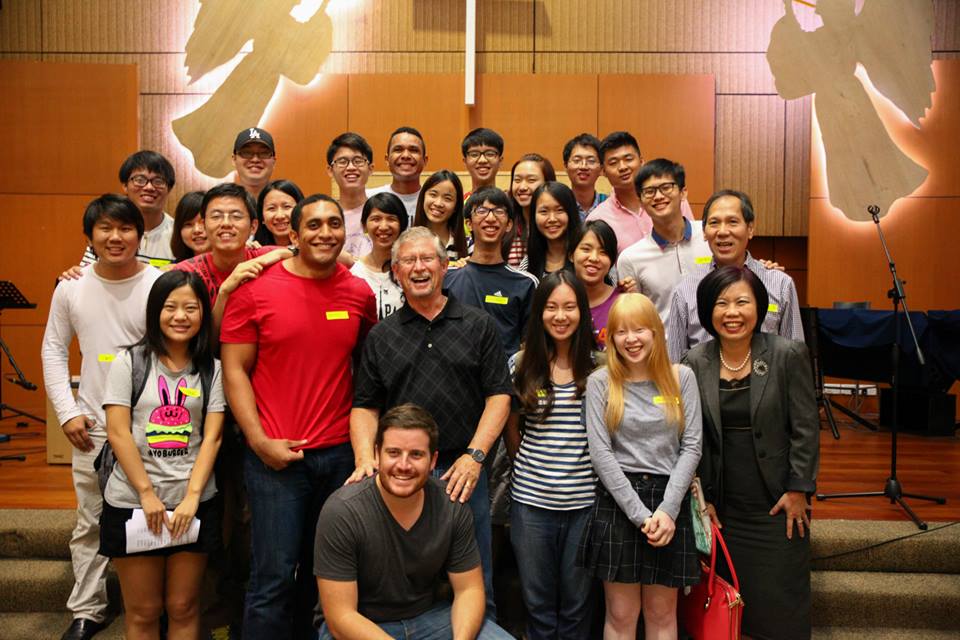
Have you ever been tongue-tied or uncomfortable while sharing the Gospel? It is supposed to be the Good News but people seem to view us with suspicion whenever we try to share the Gospel with others. If it’s truly Good News, why do people who are new to it apprehensive of it? There is truth that most people are afraid of ‘looking at themselves in the mirror’, but much of this also has to do with the way we communicate.
Do we share with our own agenda and from a mindset that we’re holy and that others need correction? Or do we share the Gospel as genuinely the most important news that has permeated our lives? Recently, Dr Greg Wilton imparted at the KNOW ConneXion conference about effective evangelism, particularly in reaching those who have not heard the Story.

Dr Greg communicated that the Gospel is above all about the transformation of life. This is the lens for effective evangelism. We must exhibit authentic signs of a relational God in our lives. Part of this is through the fruits of the Holy Spirit changing our worldview and the way we view issues. But a large part of it also has to do with sharing the news with real love for others.
Coming from this attitude, there are a variety of ways we can evangelize, and we can do it with anyone, anytime, and anywhere. The biggest battle for anyone to overcome is within ourselves. How do we respond to those fears? We must share the Gospel with the mindset of “I am sharing the Gospel not because of my courage, but because while I do not have the courage, God will give me the courage.”

God always gives us what we need, Dr Greg said, especially in equipping us to do the work of the Kingdom. Ultimately, one of the best ways we can learn to evangelize is by studying the way Jesus did it.
The Way Jesus Evangelized
The best example we can find of how Jesus evangelized to a stranger is found in John 4, in His conversation with the Samaritan woman. To set the context, the Samaritans during Jesus’ time were viewed with aversion and distrust by the Israelites. It was so much so that the prevailing notion was that a decent person would simply not interact with a Samaritan.
Additionally, the society of the time frowned upon a single man even conversing freely with a solitary woman. Within such an environment, Jesus practiced extraordinary grace upon a Samaritan woman. In this passage, we can derive 5 insights into effective evangelism.

First of all, Dr Greg communicated that Jesus was intentional. Usually, the Israelites would choose to bypass Samaria. They would rather take the longer journey around the area just so that they did not have to go into the region. Jesus intentionally went into Samaria, and furthermore, He stopped at a well while He was there.
God is intentional in our lives. He always plans and arranges our steps, and He is always with us. He knows every person coming across our paths. How aware are we of the people that God intentionally brings into our lives, often for a certain purpose?
Secondly, Jesus was informal. The first thing Jesus did was to request for water; He did not jump the gun. All He did was to request for a drink but everything He did was purposeful. Jesus started a conversation and He continued the conversation in a casual manner.

Having started the conversation, Jesus interacted with the woman. There was a back and forth in the conversation. There were times when He talked and there were times when He listened. He took the time to get to know the Samaritan woman. ‘We must place great value in loving the people we’re interacting with and come to know their stories,’ Dr Greg conveyed. Most people have something to share from their hearts; issues and struggles.
Throughout the interaction, Jesus took the initiative. If we follow the conversation carefully, we become aware that Jesus was leading the conversation and the woman responded. He gave the Samaritan woman something that answered to her soul and need.

Very crucially, Jesus introduced the Messiah and spoke about the Living Water (John 4: 13-14). This is where the water hits the wheel, Dr Greg communicated. We must know that the purpose of evangelism must come out of truly loving others. ‘There are many kind people in the world, but sadly, kindness has never gotten people into Heaven,’ he expressed. Only the grace of God and coming together with Him can give people salvation.
Sharing the Gospel
What are the lessons we can gain through the way Jesus evangelized? Before everything else, we must first have an intention to get connected. Have it in our mind to want to get to know people. Be a friend to them, and then take the initiative and steer the conversation. We need to be able to be sincerely interested in their lives and conversations. Treat them with respect and really talk to them as a friend, in a casual manner.

In due course, we must get to God and this takes practice. Getting to the fact that we’re all lost and separated from God and that we need to come back to Him is not easy. However, if we are connected to God daily, the Gospel becomes so real and good that we cannot but speak of it with authenticity.
Ultimately, we must come to a decision and it is ok for people to sometimes disagree, for it is God’s power that will work in their lives and eventually bring them salvation. The first key in effective evangelism is in loving to talk about Jesus. It is all about being a faithful witness of Christ.
NOTE: All pictures of KNOW ConneXion conference kindly contributed by the organisers of the conference.
|Share The Good News|
– Jason Law




Having heard Dr Wilton preach before, I am sure the participants had a wonderfully inspiring and challenging time being prepared to be gospel heralds!